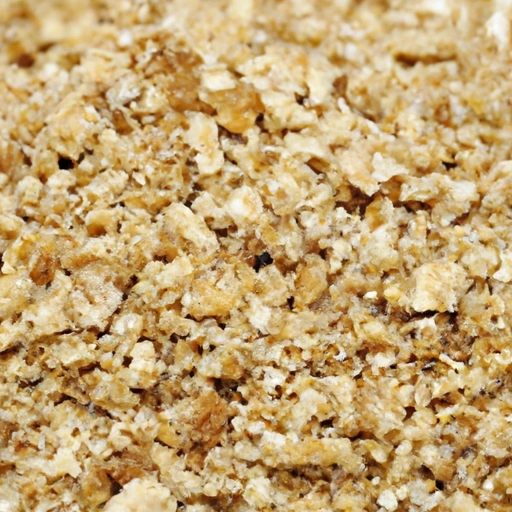Bran
Description

Bran is the hard outer layer of whole cereal grains such as wheat, oats, rice, and corn. Often removed during the refining process, bran is a rich source of dietary fiber, essential fatty acids, and various vitamins and minerals. Renowned for its health benefits, bran is frequently incorporated into a variety of culinary creations for added nutrition and texture.
Common uses
Bran is commonly used as a nutritional supplement, added to baked goods, cereals, and smoothies. It is also used in the production of bran oil and as a livestock feed ingredient.
Nutritional value
Calories
In a 1/4 cup serving (approximately 15 grams), wheat bran contains about 31 calories (130 kilojoules).
Protein
The same serving size of wheat bran offers roughly 3 grams of protein.
Fat
Bran contains about 0.9 grams of fat per 1/4 cup serving, consisting mainly of polyunsaturated and monounsaturated fats.
Carbohydrates
Wheat bran contains approximately 12 grams of carbohydrates per 1/4 cup serving.
Vitamins
Bran is an excellent source of certain B-vitamins, including niacin, thiamine, and B6.
Minerals
It is also rich in minerals such as iron, magnesium, phosphorus, zinc, and selenium.
Health benefits
The high fiber content in bran can aid in digestion and help prevent constipation. It may also contribute to heart health by lowering cholesterol levels and help manage weight by promoting a feeling of fullness.
Potential risks
Excessive consumption of bran can lead to digestive discomfort, bloating, and an imbalance of mineral absorption due to its high phytic acid content. It is important to consume bran in moderation and with plenty of fluids.
Common recipes
Bran is featured in recipes such as bran muffins, pancakes, bread, and breakfast cereals. It can also be added to smoothies and yogurt for a fiber boost.
Cooking methods
Bran can be toasted for a nuttier flavor or soaked to soften before being added to recipes. It does not generally require extensive cooking.
Pairing with other ingredients
Bran pairs well with fruits like apples and bananas, nuts, honey, and dairy products. It can also complement savory dishes when used in moderation.
Summary
Bran is a versatile and nutritious ingredient that can enhance the nutritional profile of many dishes. Its rich fiber content, along with a host of vitamins and minerals, make it a valuable addition to a balanced diet. Though it should be consumed in moderation, bran can contribute to various health benefits and is easily incorporated into both sweet and savory recipes worldwide.